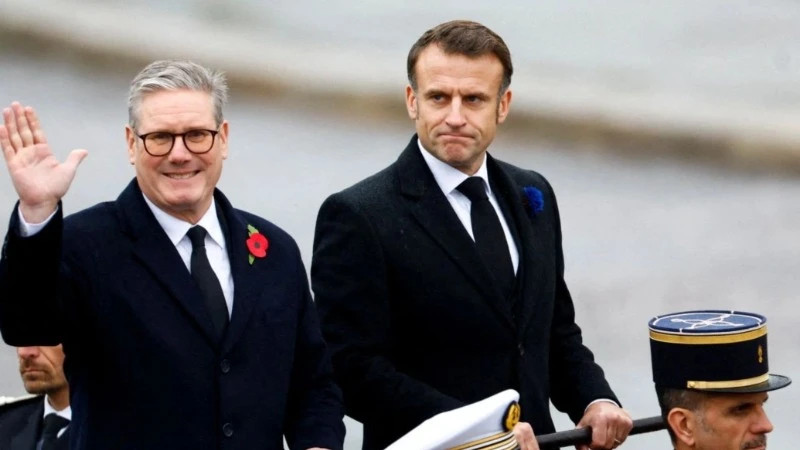The British leader’s recent trip to France is a testament to his determination to heal the long-broken relationship between the two sides of the English Channel.
Unlike previous Conservative governments, the UK’s Labour Party-led government advocates improving relations with the EU and has taken a series of strong and decisive steps amid many fluctuations in the geopolitical situation in the region and world.
British Prime Minister Keir Starmer's recent visit to France to attend the ceremony marking Armistice Day in Paris was described by leaders of both sides as a "significant moment" for bilateral relations as Starmer became the first British leader to attend a French national commemoration event since 1944.
Keir Starmer's visit to France took place just days after Trump was re-elected as US President and many questions were raised about Trump's support for the North Atlantic Treaty Organisation (NATO) as well as Ukraine during his second term as president.
France and the UK are two European countries with important positions and voices in NATO.
The above visit was also considered by experts as an effort to maintain solidarity and unity in Europe as US President-elect Trump tends to limit the United States' involvement in international conflicts and has criticized European countries on their defence spending.
During talks in Paris as part of his visit, British Prime Minister Starmer and French President Emmanuel Macron reaffirmed their strong commitment to long-term and consistent support for Ukraine.
Macron stressed the importance of European countries being proactive in security and defence issues. Prime Minister Starmer also met with French Prime Minister Michel Barnier, who was part of the Brexit negotiation team.
Since taking office as British Prime Minister in July 2024, Starmer has made clear his determination to re-establish the UK's relationship with the EU and its member states, and to find solutions to remove trade barriers caused by Brexit.
Since taking office as British Prime Minister in July 2024, Starmer has made clear his determination to re-establish the UK's relationship with the EU and its member states, and to find solutions to remove trade barriers caused by Brexit.
According to the results of a survey published by the UK's National Centre for Social Research in June 2024, only 24% of the UK population believes that the UK should be outside the EU, down from 36% in 2019 and 41% in 2016.
The UK's National Audit Office estimates that the country will spend at least 4.7 billion pounds (6 billion USD) on implementing post Brexit border arrangements, after repeated delays in establishing new rules.
With Trump having announced he would impose tariffs of up to 20% on imports into the US, economists warn that this would have a serious impact on the UK economy, as the US is the UK's largest export market. Some economists estimate that UK exports could lose up to 22 billion pounds.
Migration is also an issue that has caused turmoil in relations between the UK and France and has yet to be completely resolved.
According to the UK Home Office, since the beginning of 2024, more than 30,000 migrants have arrived in the country after crossing the English Channel from France, higher than the figure for the whole of 2023. The British Prime Minister admitted that the UK cannot "single-handedly" solve the migration problem without coordination from the other side of the English Channel.
According to Bronwen Maddox, CEO of Chatham House, the UK needs to address urgent international issues, including improving relations with the EU to offset the risks posed by the risk of the US reducing its engagement in Europe, as well as efforts to fill the post-Brexit policy gap.
Reheating the UK's relationship with France as well as the EU in general after a period of cooling, mainly caused by Brexit, is a necessary step for the common interests of all parties.
















